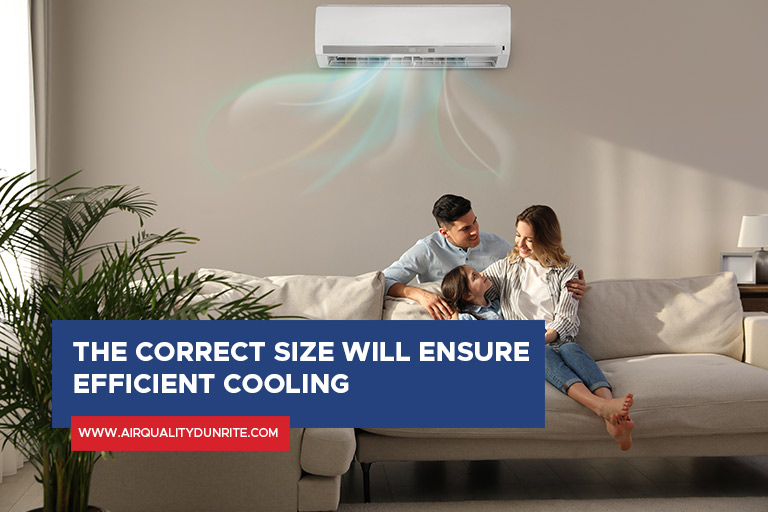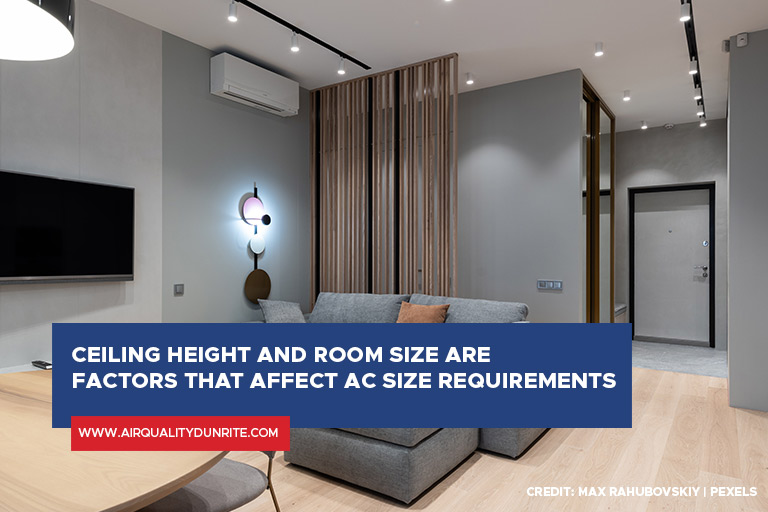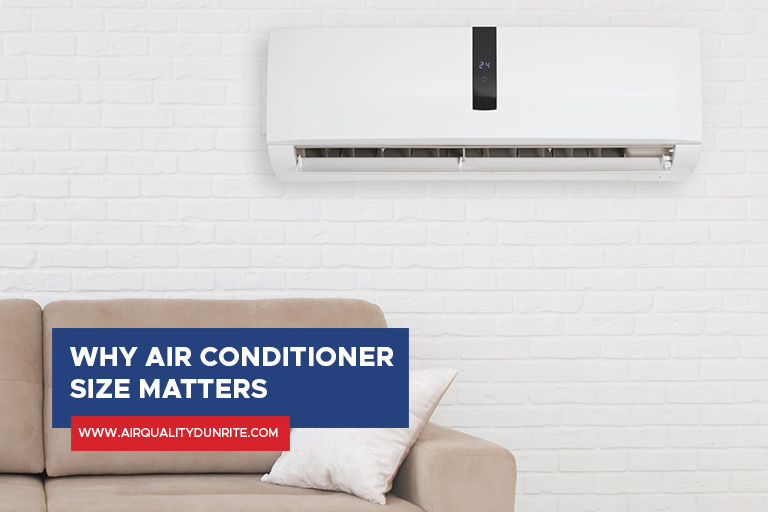When the summer heat reaches its peak, older air conditioners often struggle to keep up with the demand, even with regular maintenance. This leads to frequent breakdowns and leaves homeowners seeking solutions such as professional air conditioner repair in Toronto or AC replacement. However, selecting the right air conditioner can quickly become overwhelming due to the many available options.
When deciding which air conditioner is best, many people make the mistake of sticking to the same brand or opting for a similar model, assuming it will yield the most efficient results. Unfortunately, this approach doesn’t always deliver the desired outcome. Another common misconception is that purchasing the largest air conditioner guarantees quick and effective cooling.
Have you fallen into these traps, or are you on the verge of doing so? Do you ever wonder, “What size air conditioner do I need? What’s the importance of buying a properly-sized air conditioner? Finish reading the article to learn how to be a more informed air conditioner buyer.
Importance of Air Conditioner Size

An AC servicing professional will tell you why it’s crucial to get the right size:
Efficient cooling
It is important to take into account the unit’s size when calculating the SEER rating, in addition to its physical measurements and cooling power. The right air conditioner for efficient operation is one with an excellent Seasonal Energy Efficiency Ratio (SEER) rating. This rating indicates how effectively the unit converts electrical energy into cooling capacity.
If the unit is mismatched with the space it intends to cool, it won’t achieve its optimum SEER rating. This will result in prolonged or shortened cycles and increased energy consumption. Even installing a brand-new air conditioner with an excellent SEER rating won’t solve the cooling problem if you choose the wrong unit size.
Extra wear and tear
Constantly starting up and shutting down takes a toll on your HVAC equipment, causing it to wear out faster. An oversized air conditioning unit runs for short periods because it cools the house rapidly and then shuts off. This repetitive cycle occurs throughout the day, resulting in more frequent startups and shutdowns than a properly-sized unit. This increased wear and tear inevitably leads to more repairs and the need for a unit replacement sooner.
Indoor air quality
Oversized air conditioning units adversely affect indoor air quality since they run for shorter durations. Why does this matter? When the unit operates for short intervals, it doesn’t filter the air as effectively as a properly-sized system would. As a result, it fails to adequately remove pollutants from your home, including dust mites, mould, dead skin, allergens, and even viruses.
Cost
Air conditioners with higher horsepower and increased cooling capacity come at higher costs. Due to its mismatched size, the unit will cycle frequently, wasting more energy and subjecting its components to premature wear and tear. This stress on the parts of the system will result in increased repairs and replacements.
Proper sizing can help you avoid unnecessary expenses associated with your air conditioner. Consider calling a professional for air conditioner repair and installation to make an informed decision.
Understanding BTUs
BTU, or British Thermal Unit, is a commonly used measurement in the HVAC industry to quantify the cooling or heating capacity of an air conditioner. It helps determine the appropriate size of an air conditioner for a given space. This means that choosing the correct number of BTUs ensures that your air conditioner can effectively cool the space without being oversized or undersized.
Consider square footage and other relevant factors to match the BTU rating properly with the room size. These will influence the cooling load, which determines the required BTUs for optimal performance.
Air conditioners with too few BTUs will have difficulty cooling the room adequately. Conversely, an air conditioner with too many BTUs may cool the room too rapidly, resulting in short cycling and poor humidity control.
Factors That Affect Air Conditioner Size Requirements

Square footage is not the sole determinant of air conditioner size requirements. Other variables can impact your system’s efficiency:
Ceiling height
Rooms with higher ceilings have more volume than those with standard 9-foot ceilings. To cool such spaces more efficiently, you’ll need to calculate one or two BTUs higher than the recommended amount based on square footage.
Heat-generating appliances
Areas like kitchens and laundry rooms have appliances that generate heat, requiring additional BTUs for cooling.
Climate
In warmer climates, air conditioners must be used more frequently. They run for longer hours a day and more months in a year. In such areas, units with higher SEER ratings prove advantageous.
Insulation
Insufficient insulation in your home allows air to escape more easily, potentially requiring slightly higher tonnage for effective cooling.
Windows
Windows can contribute to energy loss, especially single-paned and numerous. Compared to double-paned, triple-paned, or low-emissivity film-coated windows, single-paned windows are less energy-efficient. Installing energy-efficient windows can reduce AC unit tonnage.
Drawbacks of an Oversized Unit
Oversized air conditioners cool spaces too quickly. Consequently, these units fail to control humidity and maintain optimal indoor air quality. Additionally, they consume more energy than necessary, keep the home excessively humid, and result in higher acquisition and operating costs.
Drawbacks of an Undersized Unit
Undersized ACs cannot cool the designated space effectively. When you need efficient cooling during the summer, an undersized unit will fall short. It will strain itself by working harder than it should, leading to increased stress on its parts, premature equipment failure, and higher air conditioner repair service costs.
Get the Right AC Size
A properly sized air conditioner will prevent uncomfortable living conditions, high energy costs, mould issues, and premature cooling system failure. If you are in the market for a new air conditioner, don’t rush.
Remember, the size of your HVAC unit plays a significant role in its performance. Choosing an HVAC system that’s too large will cost you money. Opting for a unit that’s too small will fail to provide adequate cooling or heating for your home.
In addition to negatively impacting your home’s comfort and finances, an improperly sized HVAC system will operate inefficiently. An undersized unit will constantly work overtime to reach the desired temperature, leading to faster wear and tear.
Contact Reputable Air Conditioning Technicians at Air Quality Dunrite!
For assistance with AC replacement and selecting the ideal air conditioning unit size for your home, contact the experts at Air Quality Dunrite! We will ensure your family’s health, comfort, and wallet are well cared for. Call Air Quality Dunrite today at (416) 342-1939 to enquire about the cost of an air conditioner installation or schedule an appointment for air conditioner repair in Vaughan.


